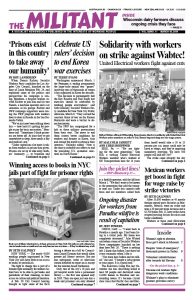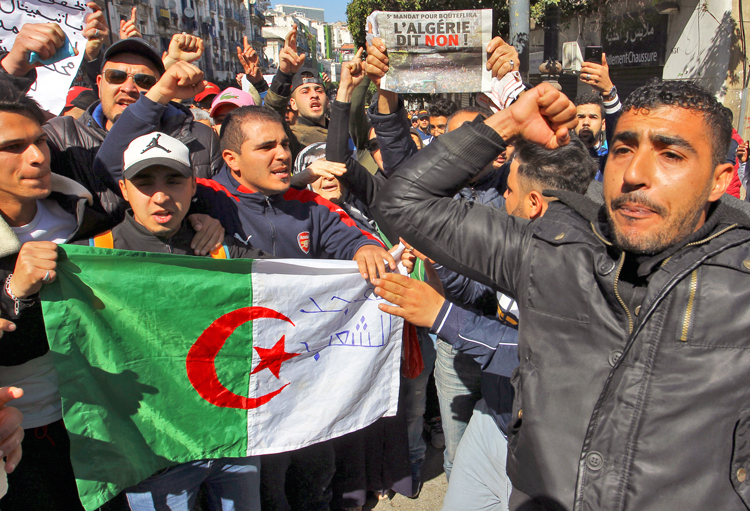Demonstrators have taken to the streets in cities and towns across Algeria in opposition to the announced re-election bid by the country’s president, Abdelaziz Bouteflika, 82, and to protest the dire economic conditions they face. Bouteflika, who has ruled the country for the past 20 years, has rarely been seen in public since suffering a serious stroke in 2013. He was too enfeebled to announce his own candidacy for the April 18 election. He left the country Feb. 24 to seek medical tests in Geneva.
Unable to agree on another candidate, Algeria’s capitalist rulers determined that Bouteflika had to run again in order to maintain the regime’s “stability.”
In Algiers, the capital, tens of thousands demonstrated in the largest protest to date March 1, defying a government protest ban. One person was killed and 183 injured in protests across Algeria that day. “What Algerians want is to get rid of not just the president, but the entire regime,” Soufiane Djilali, a leader of the Mouwatana (Democracy and Citizenship) movement, which had organized some of the protests, told the Guardian Feb. 28.
Actions have taken place in more than 30 of the country’s cities. Thousands of students staged demonstrations Feb. 26 across the country that also protested rising joblessness — over a quarter of those under age 30, Algeria’s median age, are unemployed. Journalists joined the actions Feb. 28 in Algiers demanding the right to report on these protests and for an end to government censorship.


